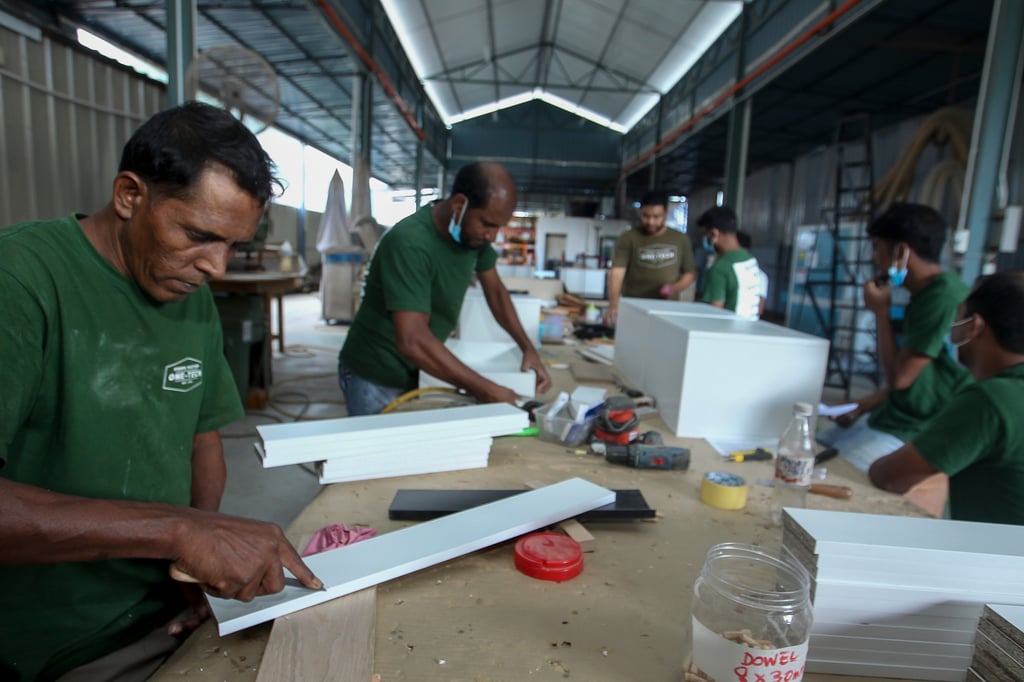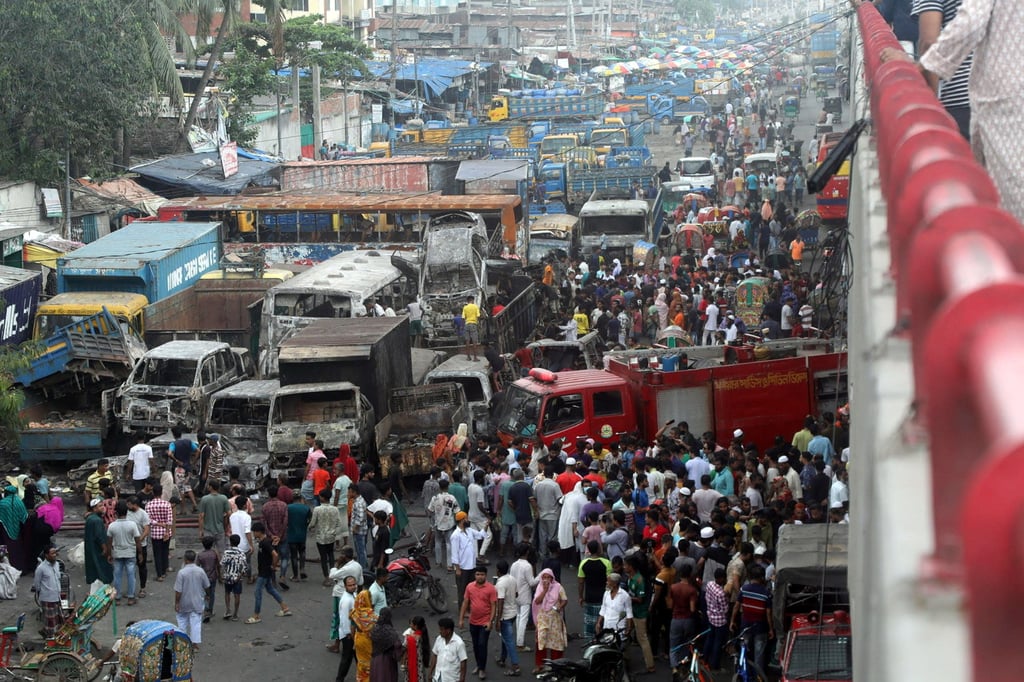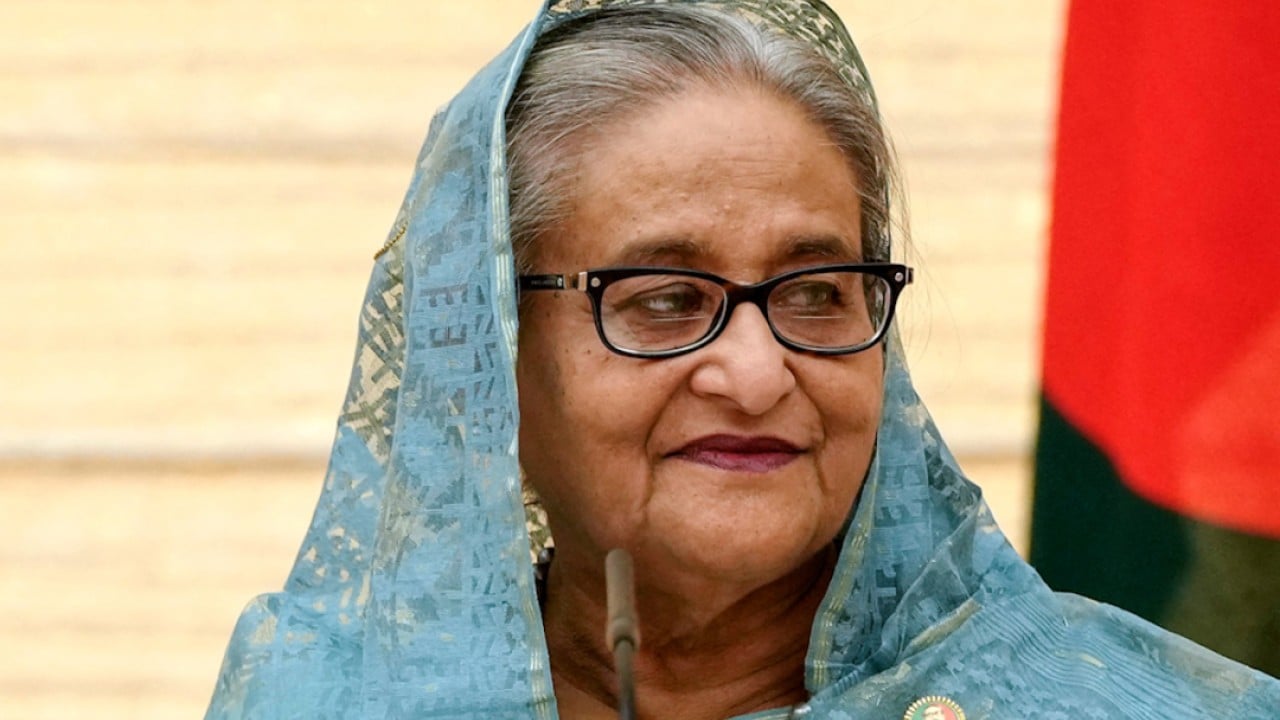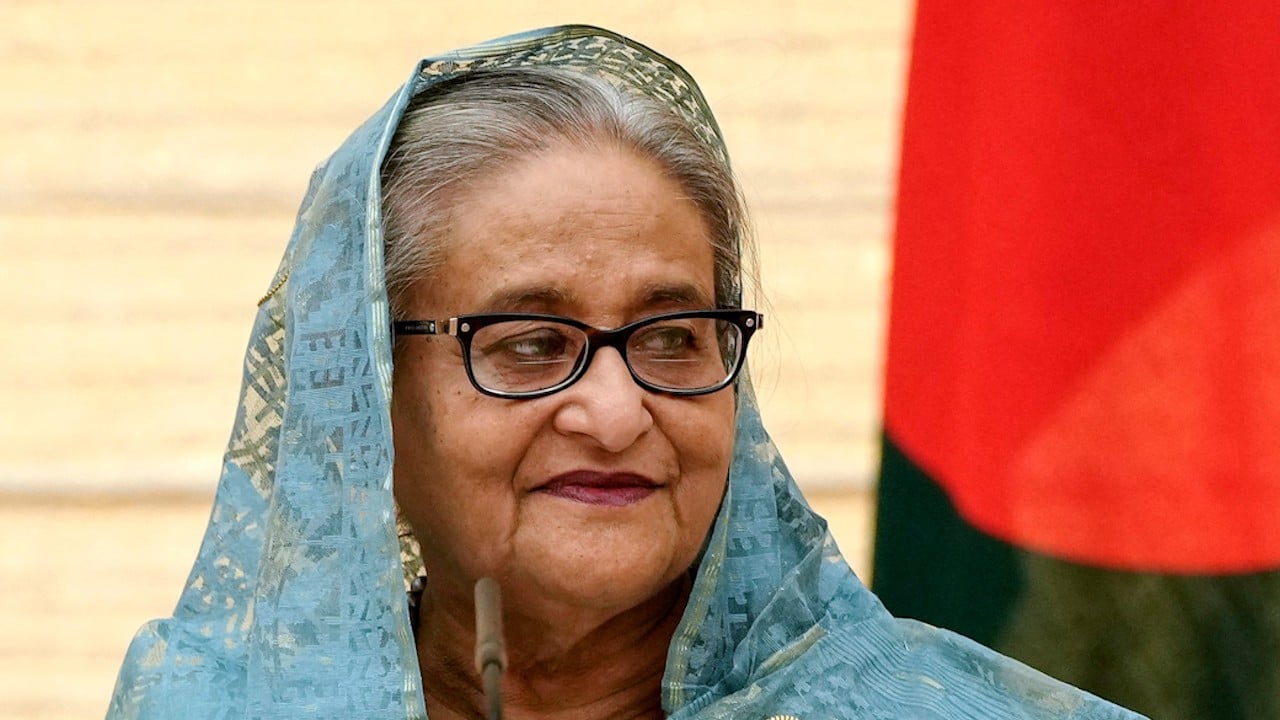Scattered across Southeast Asia, Bangladesh’s migrant workforce on Tuesday hailed the abrupt end of the Sheikh Hasina era, after 15 years which saw economic growth pour money into the pockets of tycoons yet exclude millions of the poorest who have been forced to seek work overseas.
But they remained watchful over the tricky days ahead, aware of the potential for more violence back at home, after bloody weeks which have claimed the lives of hundreds of their countrymen.
The 76-year-old Hasina fled in a helicopter on Monday as protests engulfed her government by student demonstrators, who started out calling for the end of a job quota system, but turned their demands directly on Hasina to step down for unleashing security forces on their initially peaceful rallies.

Migrant workers have been glued to their smartphones as scenes unfolded of Hasina’s residence being ransacked by protesters and hundreds of thousands flooded the streets of Dhaka in celebration at the demise of a leader who exerted an iron grip over the country.
“I wish I was there to witness it. I have been on my phone with my friends and family back home. I never thought this would happen,” Bilal Hasan, 25, who sells tea at a food market in Kuala Lumpur, told This Week in Asia.
Hasina, who came to power in 2009 and won four elections – the last uncontested in January, has been credited with lifting millions from poverty with an enviable growth rate of nearly 8 per cent before the pandemic, with a textiles industry at the centre of global supply chains, major infrastructure projects and poverty alleviation schemes tracking the nation of 170 million towards middle-income status.
Yet progress has been uneven, rewarding business allies of Hasina and her Awami League, while the rural poor have migrated overseas in ever-greater numbers, especially after the punishing pandemic years when they were stuck at home.
“We see how the prime minister lived in luxury while the people – like me – struggled, having to come to Malaysia to make a living. My friend had to work in Saudi Arabia, everywhere … just to survive,” Bilal said.
For the so-called remittance warriors – Bangladesh’s large cohort of overseas workers who are employed in construction, farms, shops and kitchens from the United Arab Emirates to Malaysia – it has been both a nail-biting and exhilarating time to be away from family and country in the throes of major change, which was barely conceivable just weeks ago.
Frequent internet blackouts across the South Asian country added to the anxiety of the overseas workers – estimated to number between 10 million and 15 million – who are among the world’s top remitters. World Bank data showed these workers sent home US$23 billion last year alone.
“I can’t believe it, it’s like a dream,” Sahool Alam, 41, a cashier at a Kuala Lumpur petrol station, told This Week in Asia. “I hope for good things now, but we don’t know yet.”
Bangladesh’s army chief was due to hold talks with student leaders and other political stakeholders on Tuesday over the formation of an interim government which will steer the country towards new elections.
In 2023, Bangladesh’s bureau of manpower, employment and training reported that 450,000 approved workers came into Malaysia since the labour market reopened after the pandemic in December 2021.
Despite their sizeable numbers, there has not been any outward burst of jubilation among the community over Sheikh Hasina’s resignation, with many saying that they want to lie low.
“Malaysians would be afraid if we celebrate, demonstrate,” Sahool said. “Not good for us, more problems.”

Malaysia has been struggling with its decades-long reliance on migrant workers, particularly Bangladeshis, and the growing rejection of the Malaysian public to what they described as a “deluge of migrant workers”, taking over their cities and jobs.
In December, more than 1,100 undocumented migrants were detained after police raided a Kuala Lumpur street pejoratively dubbed “Mini Dhaka” by locals for the predominance of Bangladeshi businesses and workers in the area. The raid saw over 1,000 officers from the Royal Malaysian Police’s paramilitary wing – which is normally tasked with counter-insurgency and counterterrorism – deployed to search premises and check the relevant documents of foreign workers.
In neighbouring Singapore, around 150,000 Bangladeshis work in the wealthy city state, making them one of its largest immigrant populations.
Mazharul Abedin, 39, a Bangladeshi mechanical engineer who has lived in Singapore for over a decade, said he was left open-mouthed at the swift downfall of Hasina, which came after a weekend of unprecedented political violence.
“I was shocked when I saw she left the country,” he told This Week in Asia.
Mazharul, a father of a five-year-old daughter, said he was relieved that his family was safe amid the chaos, adding that the end of the Hasina dictatorship had also “made them happy as well”.
“My house is in one of the most hit areas of Dhaka,” he said. “I felt very worried and it is a very messy situation back there and anything can happen at any time.”

For many of these workers who are thousands of miles away from home, the internet shutdowns also meant being stonewalled from receiving updates about family and friends.
“Since protests first started, many of us would come back to the dorm and spend hours video conferencing with friends and family back home. But when the government shut down the internet, we couldn’t find out what was happening,” said Shafiqul Islam, 40, an operations supervisor based in the republic.
Hope for a new future, away from the kleptocratic excesses attached to Hasina’s years in charge, was tempered by the risks of pent-up anger fuelling more violence, Mazharul said.
“It’s time for change, someone new should be our leader who’ll really love the country and help us move forward,” he said.



